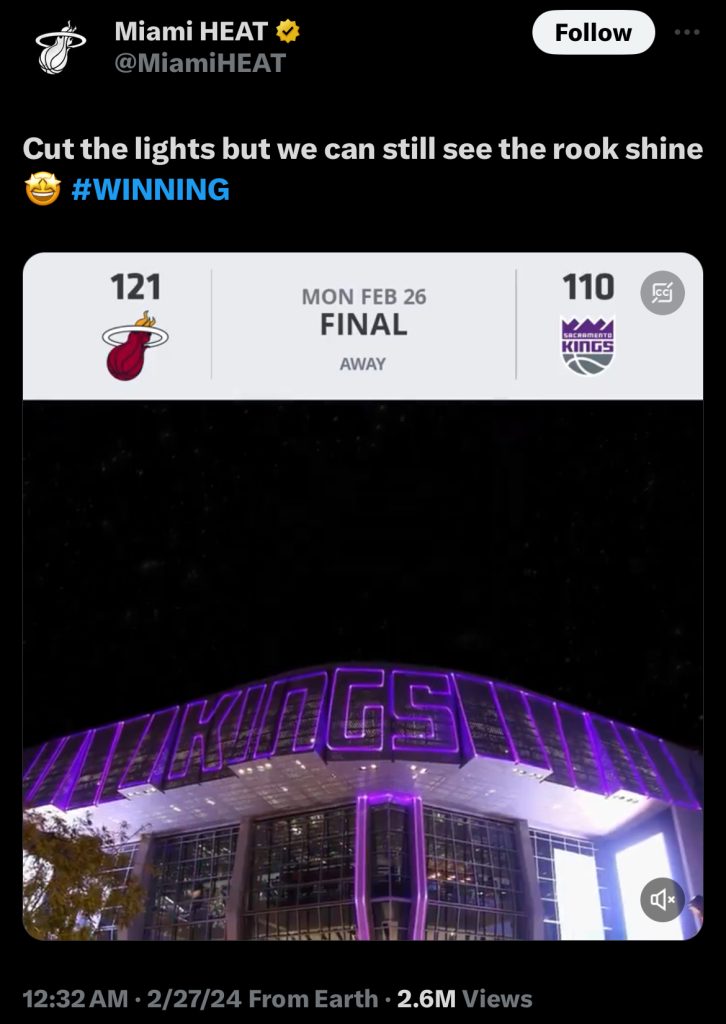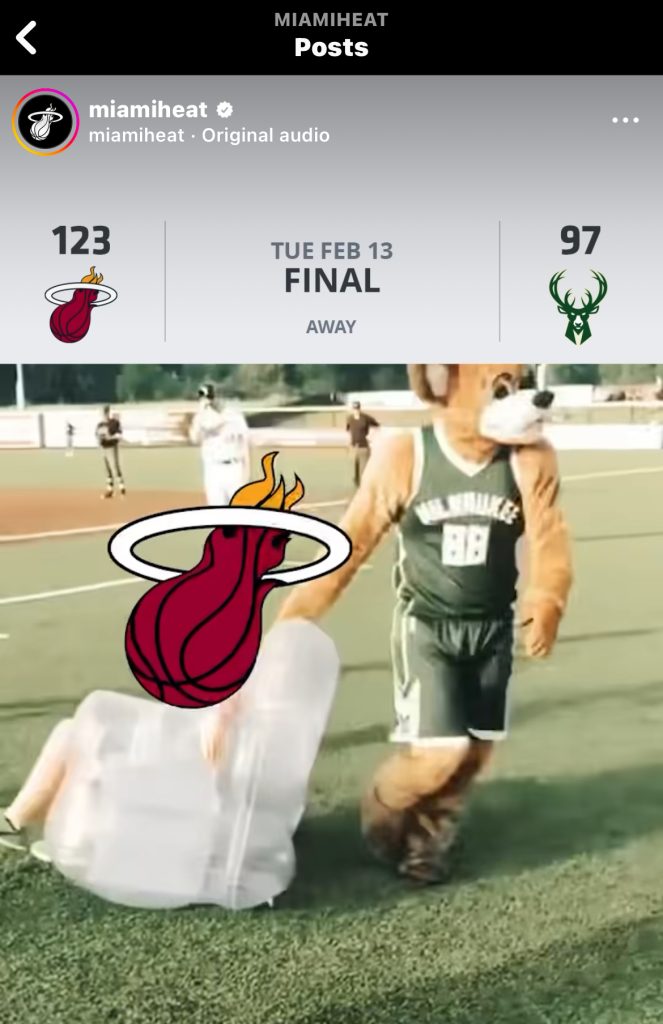PR Campaigns
Sport has been able to engage with the media at various levels and the strategic communication process has gained even more complexity since the development of the internet and social media platforms.
In the realm of sports communication, the use of these platforms has revolutionized the way sports organizations interact with their audiences. Raymond Boyle and Richard Haynes state in their article Sport, Public Relations and Social Media that “sport engages with media and communications has gained even more complexity since the development of the internet,” so having access to the internet now makes it easier for fans to stay updated with their favorite teams, players, and activities.
Most recently, a team that has had success with their social media is the Miami Heat.
The Heat have been a force to be reckoned with in the Eastern Conference in recent years with 2 NBA Finals appearances in the past 5 years. What seems to have kept up in the time frame is their use of the Instagram and X.
After each regular and postseason win, the Instagram and X admin’s will post a video showing the box score and with their “Winning” theme song playing in the background. A fast and easy way to let their fans know that they are on the positive side of the record and each video will be an edited highlight from the game, a pop culture reference popular during the week, or some sort of funny video. What all of them have in common, besides from the Heat win, is that they are eye-catching posts that haven’t slowed down since the Heat continue to be a mainstay in the conference standings.

Advances in technology and the internet leaves both the team and players various outlets to voice their opinions and news on all platforms. Boyle and Haynes say in their article, “Mobile social networked media has given a more direct public voice to athletes,”
On one hand, athletes having their own voice can be very useful for fans interacting with them directly. On the other, teams are made weary knowing that an athlete can post whatever they want, which may lead to unfavorable media attention.
Boyle and Haynes also note that teams receiving sponsorship also engage with a certain risk factor as things such as “building brand image and visibility, corporate hospitality, launching new products,” take a certain amount of investment and careful consideration in posts.
All in all, having a social media presence by any team or player directly will keep their audience invested in what is happening on the team or what is happening in the players personal lives.

